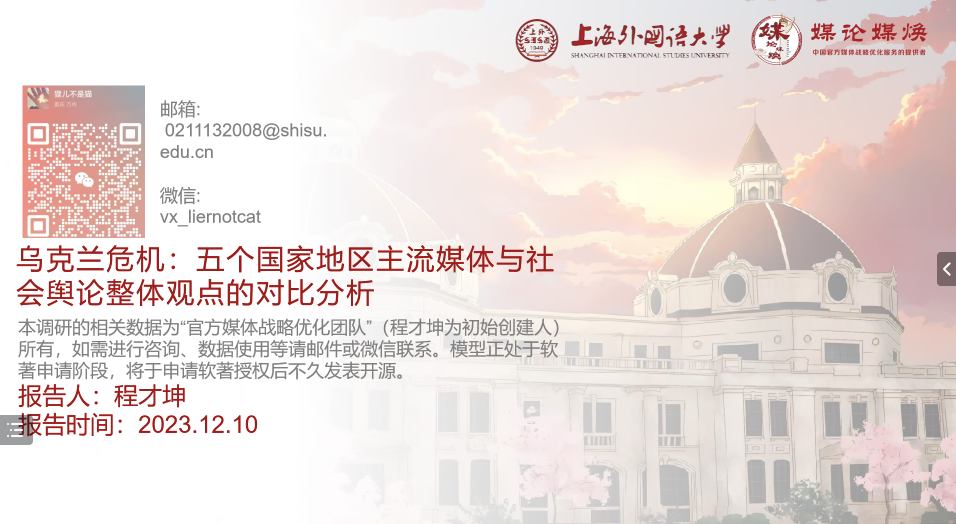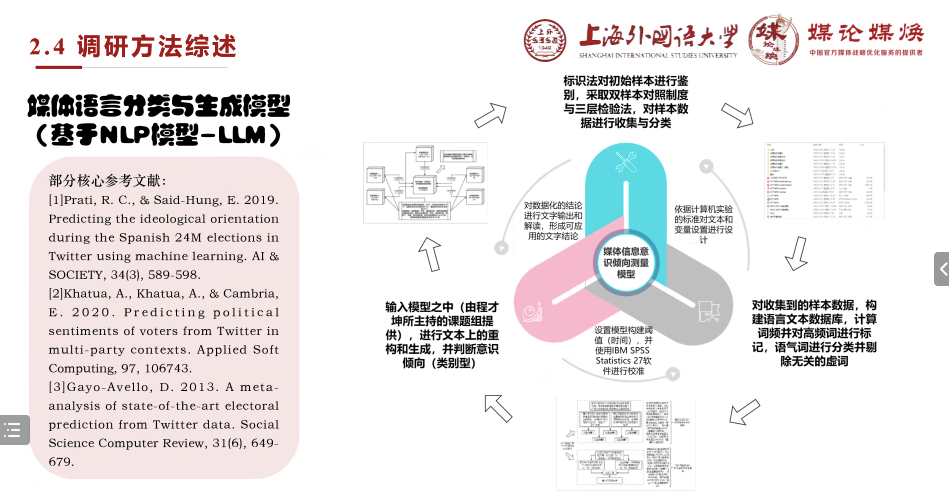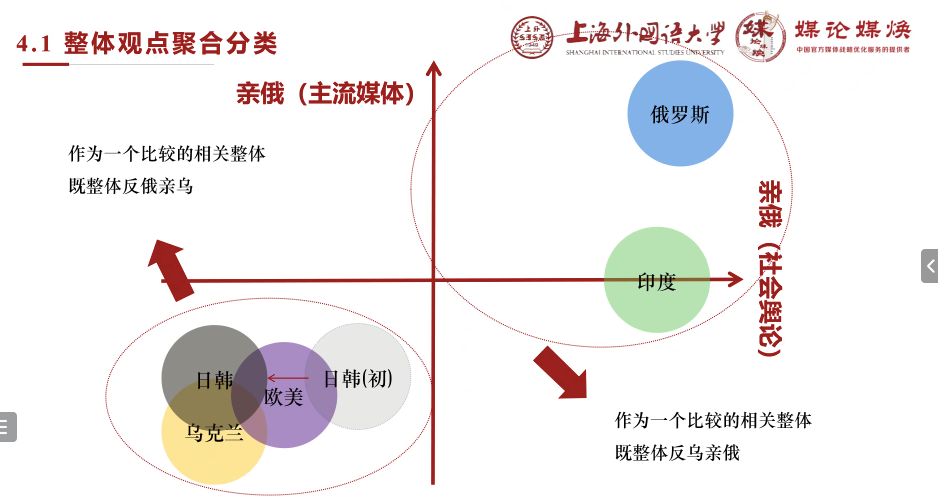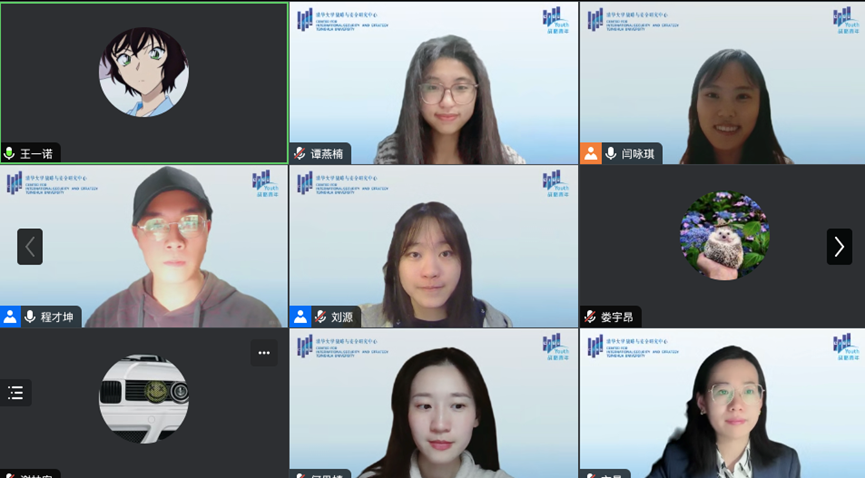On December 10th, 2023, the Center for International Security and Strategy (CISS) held the 11th session of the “CISS Youth Talk”: “Ukraine Crisis—A Comparative Analysis of Mainstream Media and Public Opinion in Five Countries and Regions.” Cheng Caikun, a member of the 4th cohort of CISS Youth, is the presenter. Ms.He Sijing, researcher at Shanghai Institute of Artificial Intelligence and Social Development and member of the fourth Corhort of CISS Youth, was invited as discussant. The event was hosted by Yan Yongqi, CISS Youth member, with Prof.Wen Jing attending as guest commentator.



During the lecture, Cheng Caikun utilized a media language classification and generation model based on NLP (Natural Language Processing) developed by his team to compare and analyze the overall perspectives of mainstream media and public opinion on the Ukraine crisis in six countries or regions: Russia, Ukraine, Europe and the United States, India, and Japan-South Korea. Firstly, Cheng briefly introduced the sources and methods of the research samples, addressing potential sources of error such as opinion leaders, sample duplication due to reposts, and extended timelines, along with corresponding solutions. Secondly, based on the sample data from mainstream media and public opinion, Cheng and his team categorized the six countries and regions into two groups: the anti-Russia/pro-Ukraine group, represented by Ukraine, Japan-South Korea, and Europe-America, and the anti-Ukraine/pro-Russia group, represented by Russia and India. The analysis not only explored the homogeneity and heterogeneity of internal viewpoints within these groups but also examined how each country and region weighed factors such as political relations, economic trade, ideology, historical ties, and other elements to adopt their current stances. Finally, Cheng shared in-depth insights on issues such as media polarization, emphasizing that media serves as a crucial tool for politicians and other communicators to promote specific viewpoints and cultivate public recognition. Therefore, it is important to approach media information with caution and treat each other with respect, understanding, and tolerance. Ms.He Sijing engaged with the presenter on topics such as the preparation and logic of building large language models and the impact of national heterogeneity on processing mainstream media and public opinion materials.

During the Q&A session, CISS Youth members Yan Yongqi from Fudan University and Tan Yannan from the School of International Relations engaged in in-depth discussions with the presenter on topics such as the interactive relationship between governments and media/public opinion, the gap between propaganda and political practice, and the influence of emotional factors on sample independence.

In the commentary section, Prof.Wen Jing praised the presenter’s research methodology and topic selection, noting that the interaction between mainstream media and public opinion is highly complex. She highlighted that civilian opinions can influence government foreign-policy decisions, and governments worldwide are increasingly emphasizing and actively participating in both domestic and international social media. Additionally, Prof.Wen Jing emphasized the profound interconnectedness and mutual influence between media and international relations, encouraging CISS Youth members to consider and explore these issues in future research.

